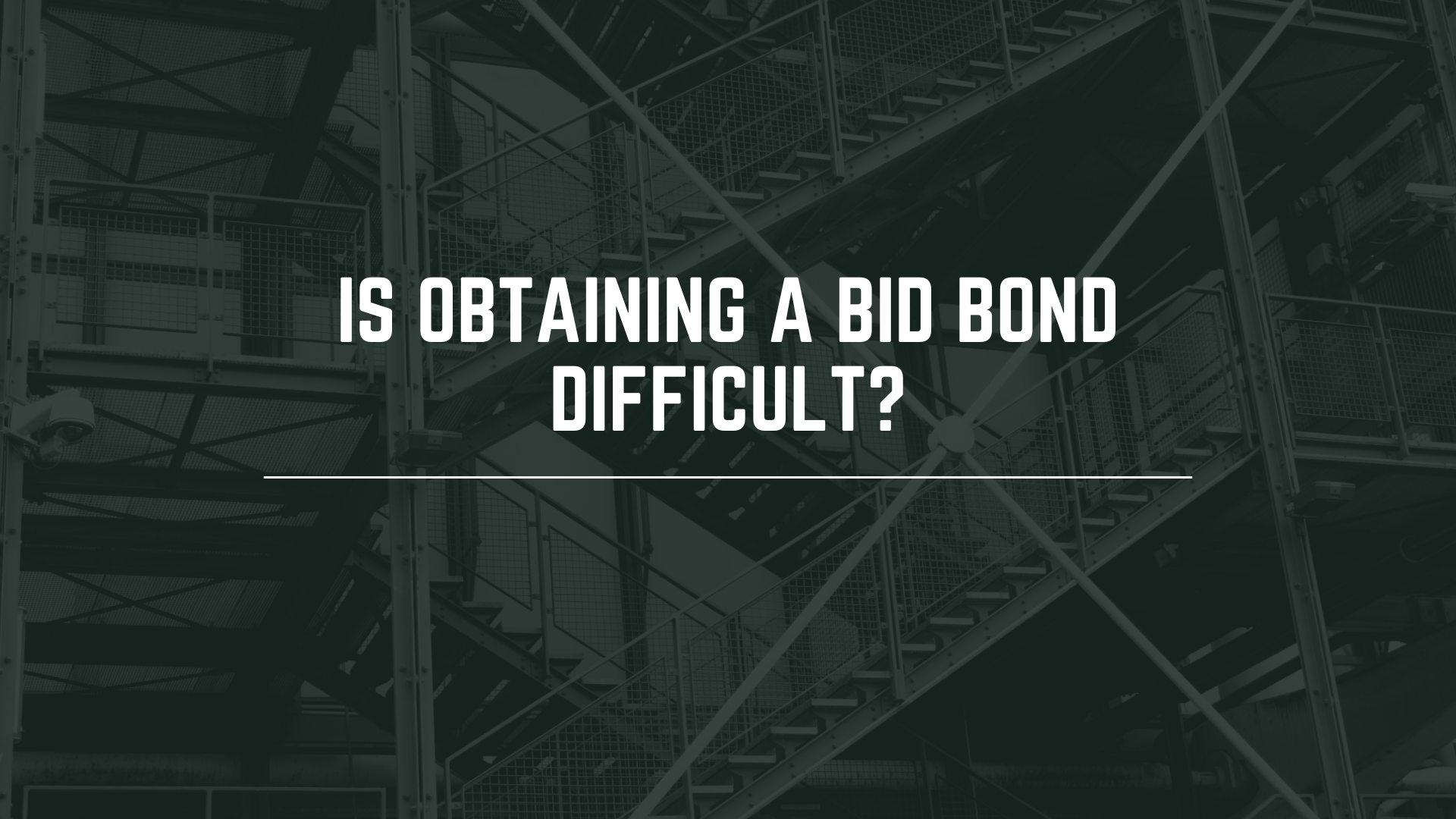How quickly can I obtain a bid bond?
Many people feel that obtaining a bid bond is a simple process, however, it can take some time. A bid bond is a guarantee of performance, and the person who posts the bond will be held liable if the contract’s terms are not met. To obtain a bid bond, you must have at least 10% of the project cost on hand, which implies $10,000 for a $100,000 project.
Before posting your offer, you’ll need your contractor’s license number or a certificate from your bonding business proving that you’re insured, as well as an active bank account into which payments can be put when they’re due.
You’ll want to know how fast the procedure is if you’re starting a new construction project that requires a bid bond. If your contractor already has a bid bond, they should be able to receive yours within 24 hours. The procedure for obtaining your own bid bond is uncomplicated and easy to understand.
What are the requirements for a bid bond?
Bidders on construction projects are obliged to provide a bid bond. The amount of the bid bond varies based on the size and type of job, as well as criteria like whether it is public work and whether a competitive bidding method will be used. A contractor is not allowed to submit bids unless he or she has first obtained a bid bond from an authorized surety provider.
The construction procedure necessitates the use of bid bonds. They are used to safeguard both the contractor and the general contractor from non-payment for services delivered. A bid bond is a type of insurance that ensures payment for work completed, even if the project is terminated before completion or if no contract exists at all.
Construction companies should always have enough cash on hand to cover their expenses while waiting for payments; but, in some cases, this may not be practicable. Bid bonds are one technique of securing funds while you wait for your last payments.
When is it appropriate to request a bid bond?
Your commercial construction project’s bid bond is the final piece of the jigsaw. It is necessary for all public works projects, but it also applies to private contractors bidding on a large-scale project with one or more other firms. What is the purpose of this? Essentially, it ensures that you won’t be left out of pocket if the contractor doesn’t finish the job and/or disappears with your money.
Some contractors want a bid bond, while others do not. What is the point of all of this? A bid bond is a type of security that ensures you will be able to pay for the contract if you win it. Many people assume they should never be required to produce one because they are not bidding on anything, but your contractor may request one for a variety of reasons.
For instance, after submitting your proposal, you learn that their company has been sued twice in the last year by other contractors who were not paid after winning bids from them.
What is the cost of a bid bond?
A bid bond is a sort of financial guarantee that allows you to submit a bid on a project while also protecting you in the event that your firm is not chosen as the winning bidder.
Bid bonds are required in some states for all bidders, while others only demand them for those with less than five years of experience or who lack proper bonding capacity. In order to secure the bond, you may be requested to supply more information about yourself, so make sure you have everything ready before beginning the process!
Construction projects are frequently delayed because the contractor fails to file a bid bond, which guarantees that they will be able to pay for any damages if they sign the contract. A bid bond’s price varies depending on where you live and how much it would cost to cover any potential losses.
If you were bidding on work in California, for example, your bid bond might cost $5K to $10K. If the company has already been sued or owes money to other contractors who have filed liens against them, the price could go much higher.
Is it true that banks issue bid bonds?
A bid bond is a type of security that ensures contract execution. Construction contractors, suppliers, and subcontractors that are bidding on tasks frequently require it. Bid bonds are also called “performance bonds” in some cases.
They safeguard both the bidder and the owner or contractor from financial loss if one of them fails to meet their contractual obligations. A bank will provide a bid bond to someone who requires one in order to be considered for employment with a company.
Bids are frequently held prior to the award of a project, and the contractor must arrive with all of their materials and equipment in order to present their proposal. The bid bond guarantees that if they are unable to offer these items, they would repay the bank or other entity who loaned them the money.
A bank may also ask a company to submit a proposal to deposit earnest money equal to 10% of the contract price as proof that they are serious about bidding on the work. If they do not have enough time to gather this sum, it will be considerably more difficult for them because banks would require assurances from others.

